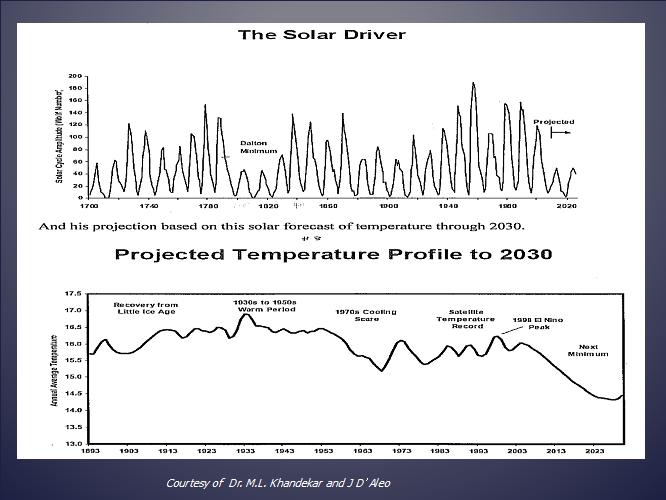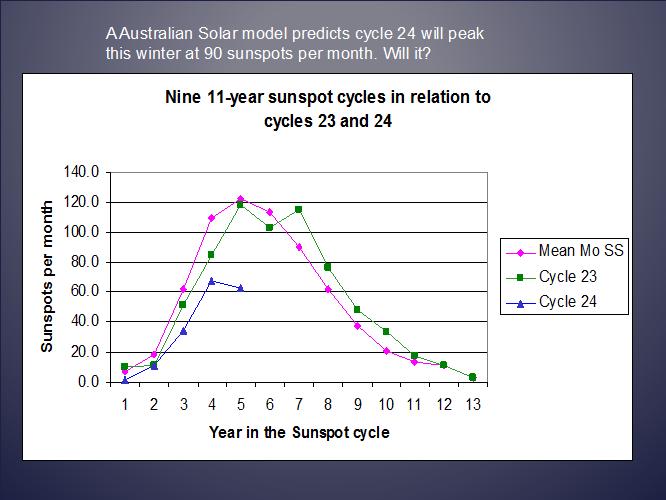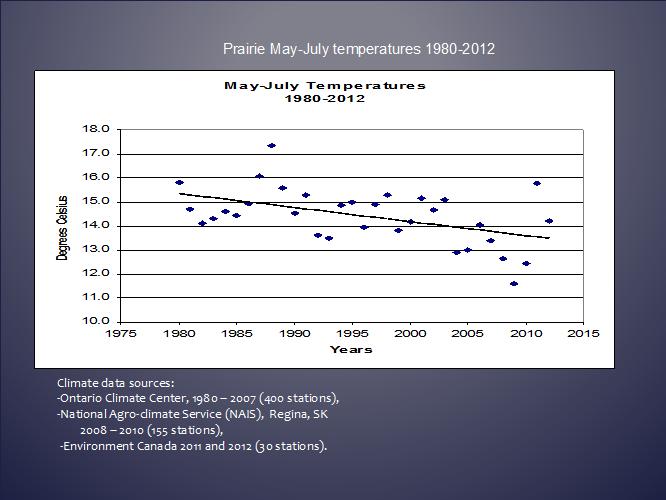Ray Garnett of Agro Climatic Consulting (ACC) recently completed a two-year research project at the University of Manitoba. Last month, speaking before the Saskatchewan Irrigation Projects Association (SIPA) conference in Moose Jaw, Saskatchewan he presented many of the findings. Noteworthy are the role the Pacific Decadal Oscillation (PDO), Madden Julian Oscillation (MJO) and Sun play in influencing Prairie summer climate. This Rural Rennaisance note summarizes key points from Mr. Garnett’s presentation.
Solar activity between now and September of 2013 will be of considerable interest as well as significance as there is increasing evidence that a Dalton Minimum repeat is shaping up which brought cooler than average global temperatures between 1790 and 1830.

The Sun is currently in the fourth year of sunspot cycle 24 when solar activity normally peaks at 120 sunspots per month (see graphic below). With only 40 sunspots reported in December 2012, the fourth year to date has brought an average of 54 sunspots per month.

The deepest solar minimum in 95 years occurred in 2009. Had it not been for a miraculously warm, dry September that year it is doubtful the wheat and canola crops would have been harvested? The very cool summer of 2009 is part of a 2ºC. cooling trend that has occurred between 1980 and 2012 during the months of May-July.

Some experts in the field are forecasting a .9 C. cooling in Northern Hemisphere temperatures during solar cycle 24 between 2010 and 2020 which would suggests shorter growing seasons for prairie grain producers.
Ray Garnett (ergarnett@shaw.ca) worked for the Canadian Wheat Board’s Weather and Crop Surveillance and Planning and Communication Departments between 1975 and 1999. He was a co-founder of the ad hoc Long Range Weather and Forecasting Working group.


